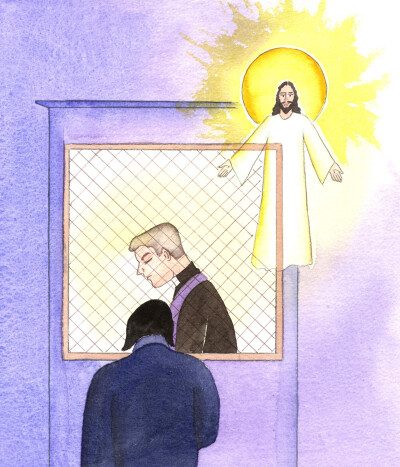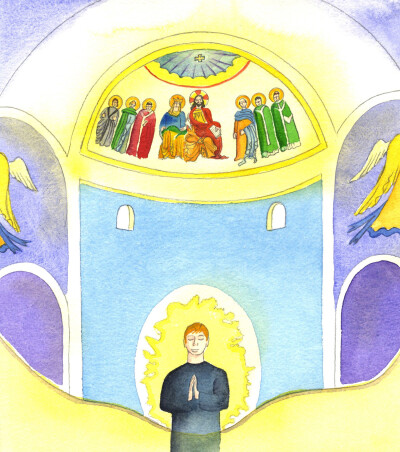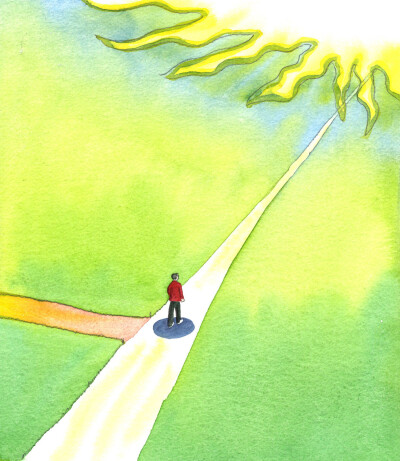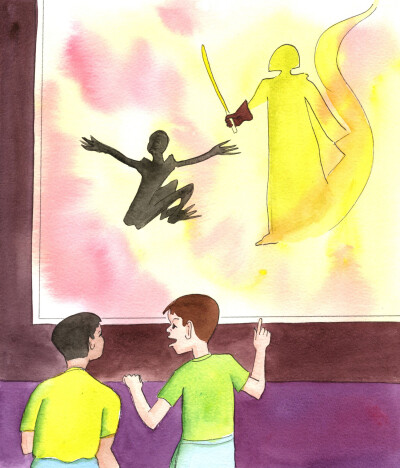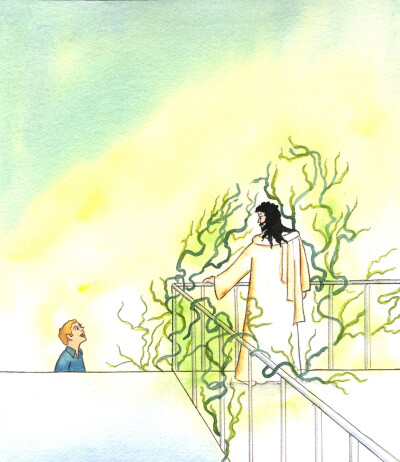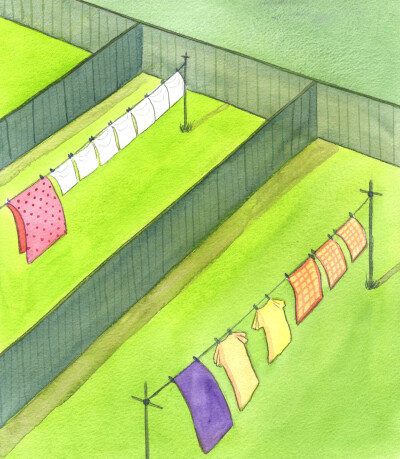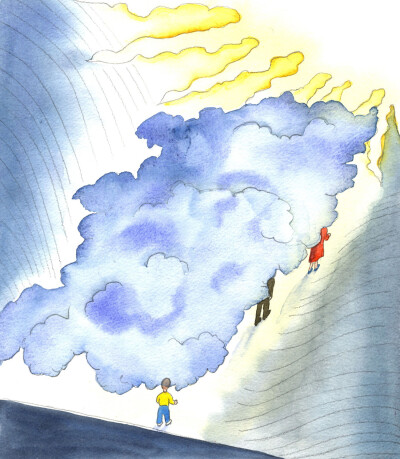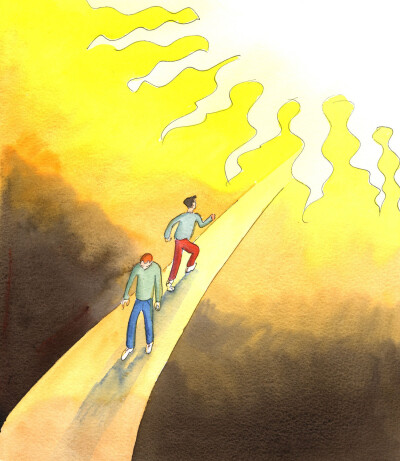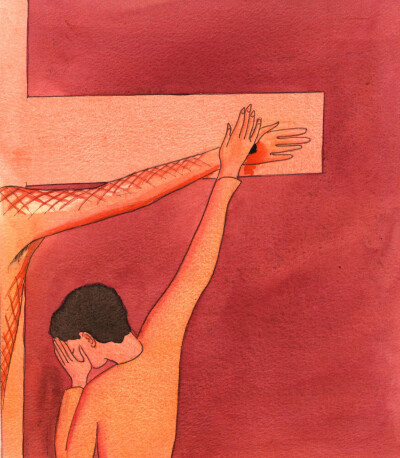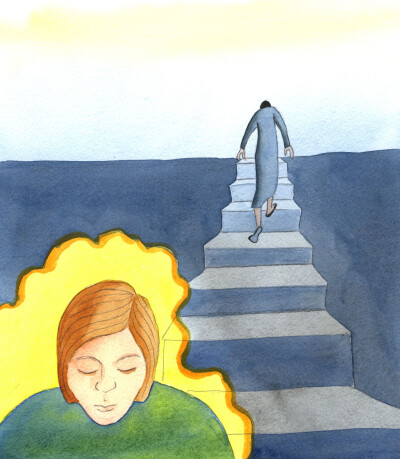Search Page
Showing 481 - 500 of 540
When we live in union with Christ, it's as if we find, through the union of our humanity with His humanity, that we achieve union with His Divinity, which is One with the Father; and so, through Christ, we have access to Heaven. Even though we cannot see it, we know that our prayers reach Heaven, through Christ, in the light of the Holy Spirit; and we are at peace.
We are sometimes impatient, expecting instant intimacy with Christ, and sweet spiritual experiences; but Christ purifies those who love Him. Those experiences of repentance and remorse can seem like a journey through a minefield; yet the bliss of known union with Christ is given as a gift to those who persevere through the 'dark nights' of the soul.
The Eucharist, for Catholics, is a sign of unity, not a step to it. A faithful Catholic cannot take part in ill-defined, ambiguously-worded ecumenical events that confuse people about truth, and yet which are meant to increase communion between Christians. The Most Holy Eucharist, treasured by Catholics, is not to be confused with a sharing of merely bread and wine, as merely a social event.
Whoever wants to be at peace with Christ need only take a few simple steps to emerge from misery and isolation. We need only make a gentle confession, regretting our sins, but determined to stop sinning, and wanting to be freed by the graces of the sacrament. Then we can go to Mass and Holy Communion, knowing we have been made worthy to take part!
Through our union with Christ, we have access to the Father. When we receive Christ in Holy Communion, and are in a state of grace, it is as though we can enter, from within our own soul, a great glorious chamber which represents the Godhead, or rather, the inner life of God. What a privilege! And how often taken for granted!
The soul of a fervent person in a state of grace is not like the cold, half-dead soul of someone whose love for God has grown cold. It is like a Cathedral, in that it is a beautiful soul, a worthy place in which to welcome Christ in every Communion: a place in which the Holy Spirit can move freely, inspiring that person to offer sincere prayers, and to do good works.
As we try to love God more and more, in a state of grace, we should be alert, and attentive, eager to please Him and serve Him well; yet we must not be made despondent by our tiny faults. In His sight, they are like tiny specks of dust on a polished table: insignificant, almost inevitable, and quite unable to diminish His love for us, in our loving union with Him.
Even when we are sincere about our conversion, and we come into full Communion, determined to follow Christ and to grow in holiness, on the path to Heaven, we might still be laden with fears, bad habits, resentments or misapprehensions, from which Christ can gradually deliver us, if we surrender to Him more and more bravely, for love of Him. Near the journey's end, we might be carrying only a small 'handbag'!
If we ask, God will rescue us wherther we are priests or laity. To live in alienation from God is like living, spiritually, in an Arctic world, cold and barren, swept away by icy winds, and not supportive of life. To choose to leave that world, by turning to God in trust and penitence is to find the road, that leads to Heaven: a road which is icy at first, but which leads to a warmer 'climate', and towards perfect union with God.
Really to love God is to prefer His Will to our ambitions. The Lord is glad to see a non-Catholic Christian come into full Communion with the Catholic Church. Yet from that 'spot' on the road there is a lengthy journey to be made, towards Heaven, and much to learn. Growth in faith, hope and love should be achieved, by God's grace, through prayer, spiritual reading, self-mastery, and acts of kindness, in humility, patience and trust.
We should follow the example of the holy Angels. When Christ comes to us in Holy Communion, or when we know He is Present in the tabernacle or on the altar, our attitude should be like that of the Angels, who adore Him profoundly, in His Divinity. He is worthy of their adoration, and ours. They never leave Him alone; and we, for our part, should always show Him reverence and love.
Some children's books are far too simple. It is often said that children are too young to learn words which Christians have used for centuries about the spiritual life and the sacraments. Yet even young children can remember complicated film-plots, and the names of foreign weapons, and hierarchies. Can they not be helped to learn the correct words for religious matters?
We can rightly picture ourselves as very small and weak, unable by our own power to life ourselves up to share God's life, and unworthy of union, without the forgiveness and purification that he can give. Yet the Holy Spirit can raise us up.
Where there is a good relationship, and a man in a garden is confident that his neighbour steps onto his balcony every day, he calls out with confidence, and knows that he will engage in conversation, even if the balcony from which the neighbour speaks is entwined with foliage, blocking the view. We can be confident that Christ is close to us, glad to be in conversation, even if we can not see Him.
It is a charitable act - a work of mercy - to attend a Requiem Mass where the sole connection with the deceased and the relations is the communion that is shared in and through Christ. The mourners are comforted by additional prayers, the dead have the Mass offered for the repose of their souls, and the clergy benefit, and God is given glory by our kindness.
Many priests should preach more than at present about Confession. Just as an ordinary housewife can tell if her neighbours are alive and active, if she sees their washing pegged out on the line each day, so a priest knows that many of his parishioners are fervent about Christ and Salvation if they provide evidence by going to regular Confession, as well as doing good for others. What should a priest think if almost no-one goes to the Sacrament of Penance, but everyone goes to Holy Communion?
Wise people look at human life from the perspective of Eternity. We are right to try to be free of our ailments and handicaps - which seem like a great 'cloud' above us - as we move through life, towards Eternity. But even people who are, for example, deaf, or have speech problems, should be confident about life. What is important is communion with God, Who can 'hear' a single thought. Our ailments need not stop us from being close to Him, until our lives end in His presence, where He welcomes His friends into His embrace, in perfect communion, for all Eternity, all 'clouds' dispersed.
In the spiritual life, we are never stationary. We are either moving closer to God or further away from Him. We either increase our union with Him, or diminish it, by every one of our thoughts, acts, words and choices.
If we are willing to be united with Christ in bearing unavoidable sufferings with patience and trust, and praying for the Church and the world, we become like Him, we join in His redemptive work of the Cross. It's as though we are with Him, beside the Cross, busy applying His Precious Blood as a healing remedy to the wounded souls for whom we pray.
Whenever we offer up our sufferings, willingly accepting them in union with Christ in His Passion, we can know that we win graces for the Holy Souls in Purgatory, or for people on earth who are trapped in sin. We enable someone, somewhere, to leave gloom behind and to move towards the light of Heaven. We do their penance, for them.
Showing 481 - 500 of 540

